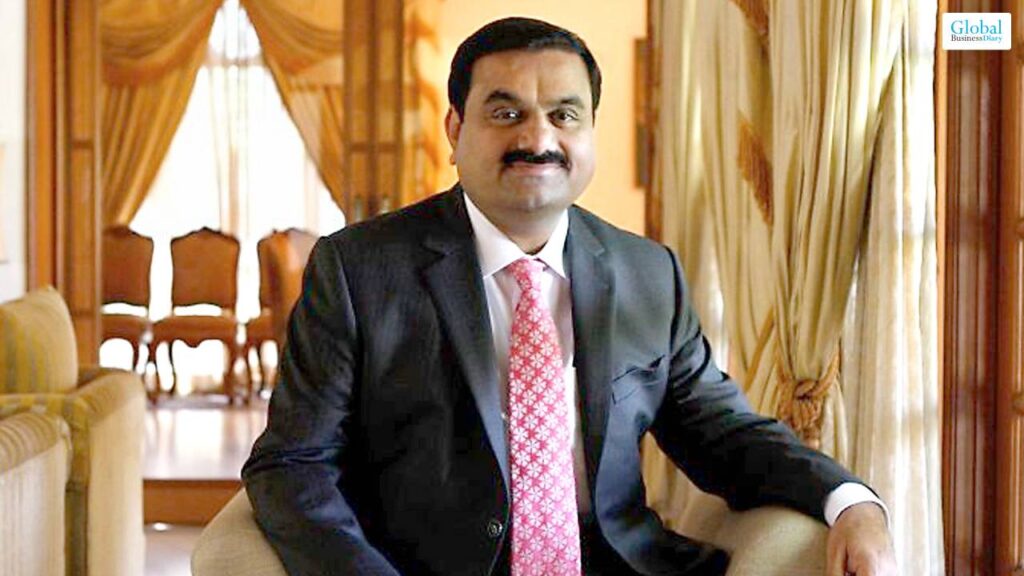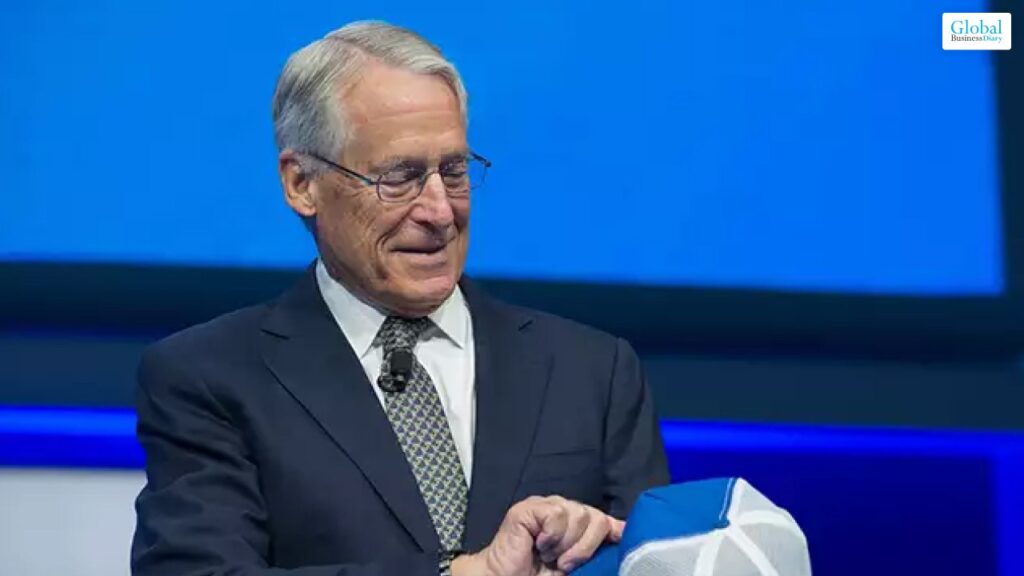Top 20 Richest Person In The World

The position of the richest person in the world has never been empty. One after another, a rich business entrepreneur has taken the spot of the richest person on earth.
Forbes, the American Business magazine, publishes the World’s Billionaires list every year. They compile the list of the richest businessmen and businesswomen in the world and publish the compiled list.
The listing is usually done based on their documented assets and by accounting for them for debt and other different factors. The list of the richest person in the world usually comes out in March, and the first-ever list of the richest man on earth came out back in 1987.
Bill Gates was the richest person on the planet from 1995 to 2010; then again, he claimed the position in 2013 and kept it till 2017. The current individual to own the title of the richest person on earth is Elon Musk.
Here is a small overview of the richest person on earth–
1. Elon Musk

| Age: 51 |
| Nationality: American |
| Net Worth: $240.7 Billion |
| Important Assets: SpaceX, The Boring Company, Twitter. |
| Famous For Tesla, SpaceX, Twitter ownership |
Elon Musk is best known as the founder of Tesla. He is responsible for PayPal. It was his startup X.com that later became known as PayPal. Musk revolutionized the electric vehicle industry with his car manufacturing company, Tesla. He is the richest person in the world.
He also invented his zero-profit organization named SpaceX. Musk is also the owner of SolarCity. Elon Musk also owns Neuralink, The Boring Company, Open Ai, and Tesla Energy are some of his business ventures. Recently, Musk also acquired Twitter.
2. Jeff Bezos

| Age: 59 |
| Nationality: American |
| Net Worth: $154.9 Billion |
| Important Assets: Amazon, Blue Origin, The Washington Post |
| Famous For Amazon |
Amazon, founded by Jeff Bezos, is the pioneer of all eCommerce platforms. Jeff Bezos has also acquired the place of the richest person on the planet. Bezos started his eCommerce venture with the intent to sell books online.
Although Bezos pitched the idea to the head of the prestigious book store named D.E Shaw, his ideas were not well received. Bezos then took the risk to start his own eCommerce platform we now know as amazon. Bezos is the former richest person in the world.
3. Bernard Arnault

| Age: 74 |
| Nationality: French |
| Famous For LVMH |
| Important Assets: Moelis & Company equity, Hermès equity |
| Net Worth: $231 billion |
Bernard Arnault is the chairperson of LVMH. Several famous fashion brands are known as LouisVuitton, and Hennesey is under his ownership. Most of his wealth comes from his stake Christian Dior SE. This holding company controls 41.35% of the whole LVMH.
4. Bill Gates

| Age: 67 Net Worth: $119.3 Billion |
| Nationality: American |
| Famous For Microsoft |
| Important Assets: Cascade Investment LLC |
Bill Gates’ love for computers bloomed into the largest software company the world has ever seen. He and his lifelong friend Paul Allen developed the software company we know as Microsoft. Bill Gates remained the richest person in the world through the virtue of Microsoft.
Aside from being the richest man on earth, Gates is also known for his charitable work and as an environmentalist.
5. Gautam Adani

| Age: 61 Nationality: Indian Famous For Adani groupset |
| Assets: Adani Ports & Special Economic Zone, Adani Green Energy, Adani Total Gas |
| Worth: 55.7 billion Important Assets: Adani Ports & Special Economic Zone, Adani Green Energy, Adani Total Gasimportant |
The founder of Adani Group, Gautam Adani, became listed in the Forbes magazine as the fourth richest man in the world surpassing Bill Gates. But currently (1st June 2022) he ranks as the 7th richest man on the planet. Adani is close behind Elon Musk, the richest person in the world.
6. Warren Buffet

| Age: 92 |
| Net Worth: $117.4 Billion |
| Famous For Business and Philanthropy |
| Important Assets: Berkshire Hathaway |
| Nationality: American |
The master investor Warren Buffet returned the first tax of his life at the age of 14. Buffet owned and held the stocks of underdeveloped companies for the long term and acquired immense wealth that way. In 1962, he acquired his first share of a company named Berkshire Hathaway, and he became the major stakeholder of the company in 1965.
7. Larry Page

| Age: 50 years |
| Nationality: American |
| Famous For Google |
| Net Worth: $119 Billion |
| Important Assets: Alphabet stakes |
Larry Page is the founder of the most used internet search engine named Google. He founded Google in 1998. Now it is the most dominant search engine in the world. As of 2015, Google became a subsidiary of Alphabet, a holding company.
8. Sergey Brin

| Age: 50 |
| Nationality: American/Soviet |
| Famous For Google President of technology |
| Net Worth: $106.2 Billion |
| Important Assets: 6% Alphabet stake |
Another rich person in the world is Sergey Brin, the owner of the 6% stake in Alphabet. He became the president of the tech at Google in 2001. After Alphabet was established he held the same post at google and acquired a massive amount of wealth.
9. Mukesh Ambani

| Age: 65 years |
| Nationality: Indian |
| Famous For Reliance Industry |
| Net Worth: $98 billion |
| Important Assets: Reliance assets |
Son of Dhirubhai Ambani, Mukesh Ambani is the owner of Reliance industries. The textile mill that Dhirubhai Ambani opened in 1966 has been listed on the stock exchange of Mumbai since 1977.
That is where the wealth of Reliance started to grow, making Mukesh Ambani one of the richest persons on the planet. Mukesh Ambani might not be the richest person in the world but he has acquired an immense amount of assets.
10. Steve Ballmer

| Age: 66 years |
| Nationality: American |
| Famous For Microsoft CEO |
| Net Worth: $89 billion |
| Important Assets: 4% Microsoft assets |
Ballmer succeeded Bill Gates as the CEO of Microsoft from 2000 to 2014. He also owns a 45 stake in the Microsoft company. He is also the owner of the Los Angeles Clippers basketball team for $2.
11. Larry Ellison

| Age: 79 |
| Nationality: American |
| Famous For Software company Oracle |
| Net Worth: $139.0 Billion |
| Important Assets: 35% share of Oracle |
Larry Ellison is the co-founder and the chairman of the big software company named oracle. His immense wealth is the result of his 35% share in the company. Aside from being the CEO of Oracle, Ellison is also the technology officer of the company.
12. Carlos Slim Helu

| Age: 82 |
| Nationality: Mexican |
| Famous For América Móvil, telecom company Net Worth: $81 billion important |
| Assets: América Móvil, 17% of The New York Times |
The richest man in Mexico is Carlos Slim Helu. He and his family control the biggest mobile telecom named América Móvil. He also has a stake in a Mexican mining and construction group. He also owns 17% of The New York Times.
13. Mark Zuckerberg

| Age: 38 |
| Nationality: American |
| Famous For Facebook, Meta |
| Net Worth: $67.7 billion |
| Important Assets: 12% Facebook stock |
Mark Zuckerberg is known for his creation of the social media app named Facebook ( currently termed Meta). Meta also has different platforms like Instagram, Whatsapp, and Messenger under its control.
Elon Musk has surpassed Zukerberg as the richest person in the world. But Zuckerberg still is the founder of one of the first social networking companies in the world.
14. Michael Bloomberg

| Age: 81 Nationality: American |
| Famous For Co-Founder of Bloomberg LP, Mayor of New York City |
| Net Worth: $96.3 Billion |
| Important Assets: 88% Bloomberg LP |
The co-founder of the financial information company named Bloomberg LP is Michael Bloomberg. He owns 88% of the company’s stake. Mr. Bloomberg has also remained the Mayor of New York City for 12 years.
15. Zhong Shanshan

| Age: 67 |
| Nationality: Chinese |
| Famous For CEO of Nongfu Spring |
| Net Worth: $65 billion |
| Important Assets: 84% of Nongfu Spring |
A school dropout, Zhong Shanshan is the chairperson of a bottled water company named Nongfu Spring. The company got listed in the Hong Kong stock in 2020. His early life was spent as a construction worker. He is not the richest person in the world, but his growth is inspiring for business people.
16. Jim Walton

| Age: 75 |
| Nationality: American |
| Famous For Board Member of Walmart, Arvest Banks Chairperson |
| Net Worth: $67.7 Billion |
| Important Assets: Walmart, Arvest Bank. |
The youngest son of the founder of Walmart is Jim Walton. He is also the chairman of his family’s bank named Arvest Bank. He also used to be one of the board members of Walmart. His immense wealth from Arvest Bank lists him way behind Elon Musk as the richest person in the world.
17. Alice Walton

| Age: 75 |
| Famous For Crystal Bridges Museum of American Art |
| Nationality: American |
| Net Worth: $66.0 Billion |
| Important Assets: Walmart share |
Sister of Jim Walton and the only daughter of the Walmart founder Sam Walton, Alice is a collector and curator of arts. She is the founder of the Crystal Bridges Museum of American Art.
18. Rob Walton

| Age: 77 |
| Nationality: American |
| Famous For Walmart chairman |
| Net Worth: $59 billion |
| Important Assets: Walmart stock |
Rob Walton took over for his father as the chairperson of Walmart in 1992. All the Walton siblings own half of the Walmart stocks. The wealth of Walton may not be enough to make him the richest person in the world. But his wealth is near many big named billionaires.
19. Changpeng Zhao

| Age: 46 |
| Nationality: Canadian |
| Famous For Binance exchange |
| Net Worth: $13.1 Billion |
Changpeng Zhao, also known as CZ, is the founder of the biggest cryptocurrency exchange in the world. Finance is the biggest Cryptocurrency exchange in the world, and CZ is the billionaire with a $17 billion net worth.
20. Francoise Bettencourt Meyers

| Age: 70 |
| Nationality: French |
| Famous For L’Oreal company CEO, the richest woman in the world |
| Net Worth: $84.9 Billion |
| Important Assets: 33% L’Oreal stock |
Francoise Bettencourt Meyers may not be the richest person in the world, but she is the richest woman in the world. She is the granddaughter of the founder of the L’Oreal company. She and her company hold 33% of the company.
Frequently Asked Question (FAQs)
If you are looking for any further queries, here are some questions and answers –
Ans: Elon Musk, the confounder of Tesla and the founder of SpaceX, is the number one richest person in the world. Before him, the position was held by Bill Gates and Jeff Bezos.
Ans: Here are the seven richest people in the world –
i. Elon Musk
ii. Jeff Bezos
iii. Bill Gates
iv. Warren Buffett
v. Bernard Arnault
vi. Larry Page
vii. Sergey Brin
Ans: Gautam Adani of the Adani group and industries is the richest person in India. His business with Adani groups has helped him acquire $112 billion. Some other billionaires from India are – Mukesh Ambani, Shiv Nadar, Lakhsmi Mittal, etc.
Ans: The strong business acumen, innovative ideas, and the will to do disruptive industrial work are the main reason behind Elon Musk’s wealth.
Final Words
The list of the richest people in the world keeps changing. If you look at the list a year or two ago, there was another person sitting at the top of the list.
The current list of the richest person in the world is topped by Elon Musk, the founder of Tesla, SpaceX, and several other companies. He is succeeded by Jeff Bezos, Bernard Arnault, Bill Gates, Gautam Adani and so many more. I hope the list above helps you with the information you need.
Read Also:













